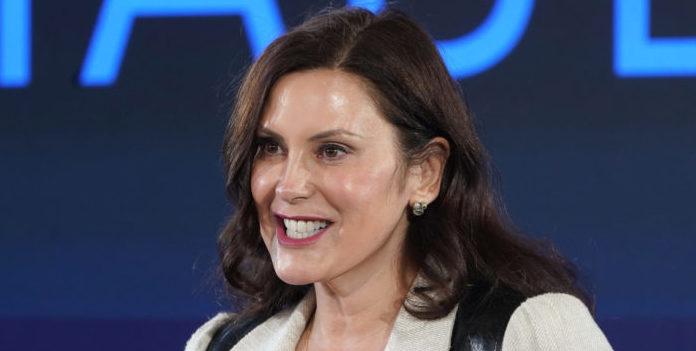() Gov. Gretchen Whitmer wants to spend $280 million of the state’s projected $3 billion surplus on learning loss recovery.
The spending aims to recover learning loss for 1.4 million kids after Whitmer shuttered schools statewide in 2020, which pivoted to remote learning.
But even in 2022, Flint and metro Detroit schools have shifted temporarily back to remote learning.
“The MI Kids Back on Track program would double down on tackling unfinished learning by investing in what our kids need most,” Whitmer said in a statement.
That, she said, would require taxpayers to shovel out money for private tutors on top of the existing education expenses.
“In a tutoring setting, students get help from a caring, qualified adult who is focused on their specific learning challenges,” Whitmer said. “Whether you’re a third grader learning about the solar system, a 6th grader getting better at fractions, or a junior sharpening persuasive writing skills—tutoring makes a difference.”
The proposal follows Whitmer vetoing two education packages in 2021.
In November 2021, Whitmer vetoed education opportunity scholarships that could have been spent on tutors, transportation, textbooks, mental and physical health, speech, and career education costs.
In July 2021, Whitmer line-item vetoed $155 million to help struggling kindergartners through 5-year-olds recover from COVID learning loss.
Michigan’s 2021 annual learning assessments found that remote learning resulted in suffering reading and math grades.
A 2022 Centers for Disease Control and Prevention study found that remote learning also disproportionately hurt kids’ mental health.
Testing data from 2.1 million students in 49 states plus the District of Columbia and found that “remote instruction was a primary driver of widening achievement gaps,” according to a new working paper.
“In districts that went remote, achievement growth was lower for all subgroups, but especially for students attending high-poverty schools,” researchers wrote in the new paper. “In areas that remained in person, there were still modest losses in achievement, but there was no widening of gaps between high and low-poverty schools in math (and less widening in reading).”
However, the study found “no widening of math achievement gaps” between high-, middle-and low-poverty schools that stayed in-person through 2020-2021.
A McKinsey & Company report found that pandemic learning loss includes more than just academic learning.
“They are at risk of finishing school without the skills, behaviors, and mindsets to succeed in college or in the workforce,” the analysis said.
The report estimated that “[S]tudents may earn $49,000 to $61,000 less over their lifetime owing to the impact of the pandemic on their schooling. The impact on the US economy could amount to $128 billion to $188 billion every year as this cohort enters the workforce.”

